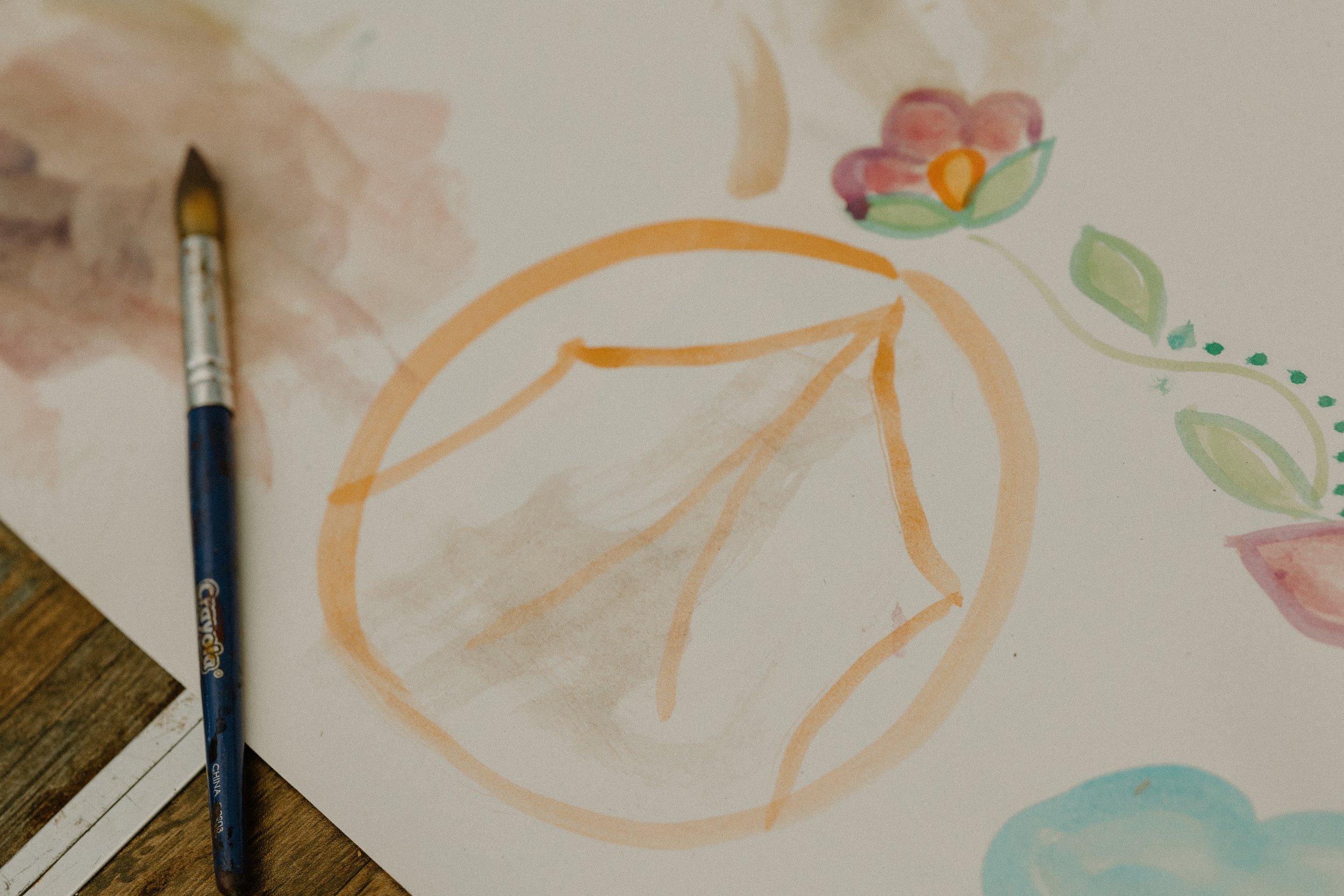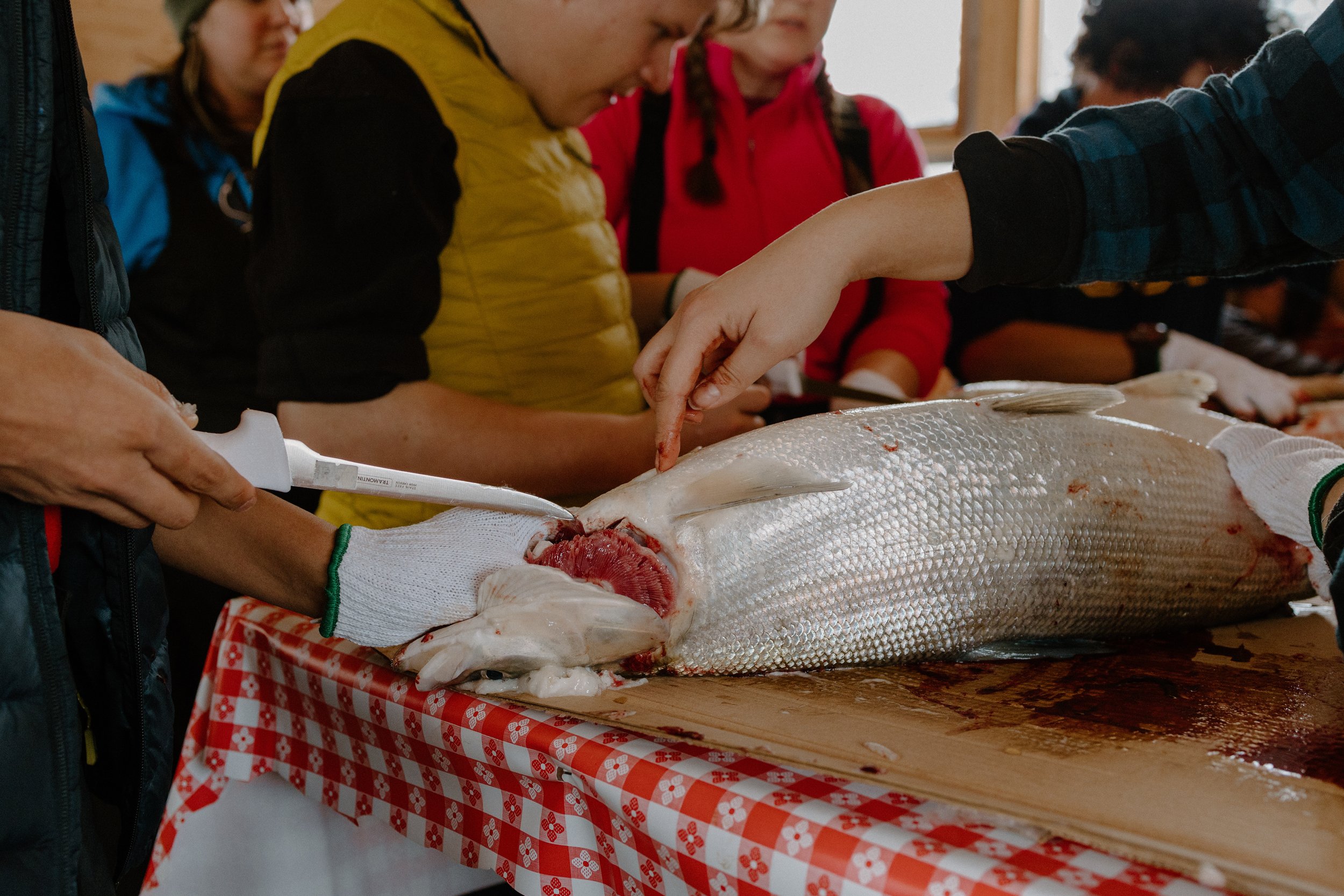
Our Research Program
Dechinta has made a significant contribution to Northern Indigenous and Dene knowledge creation, preservation and dissemination over the past decade. Developing relationships and working closely in collaboration with Yellowknives Dene elders, community members and academics for so many years has led Dechinta to practice a research approach that is rooted in Dene ethics, laws, and values.
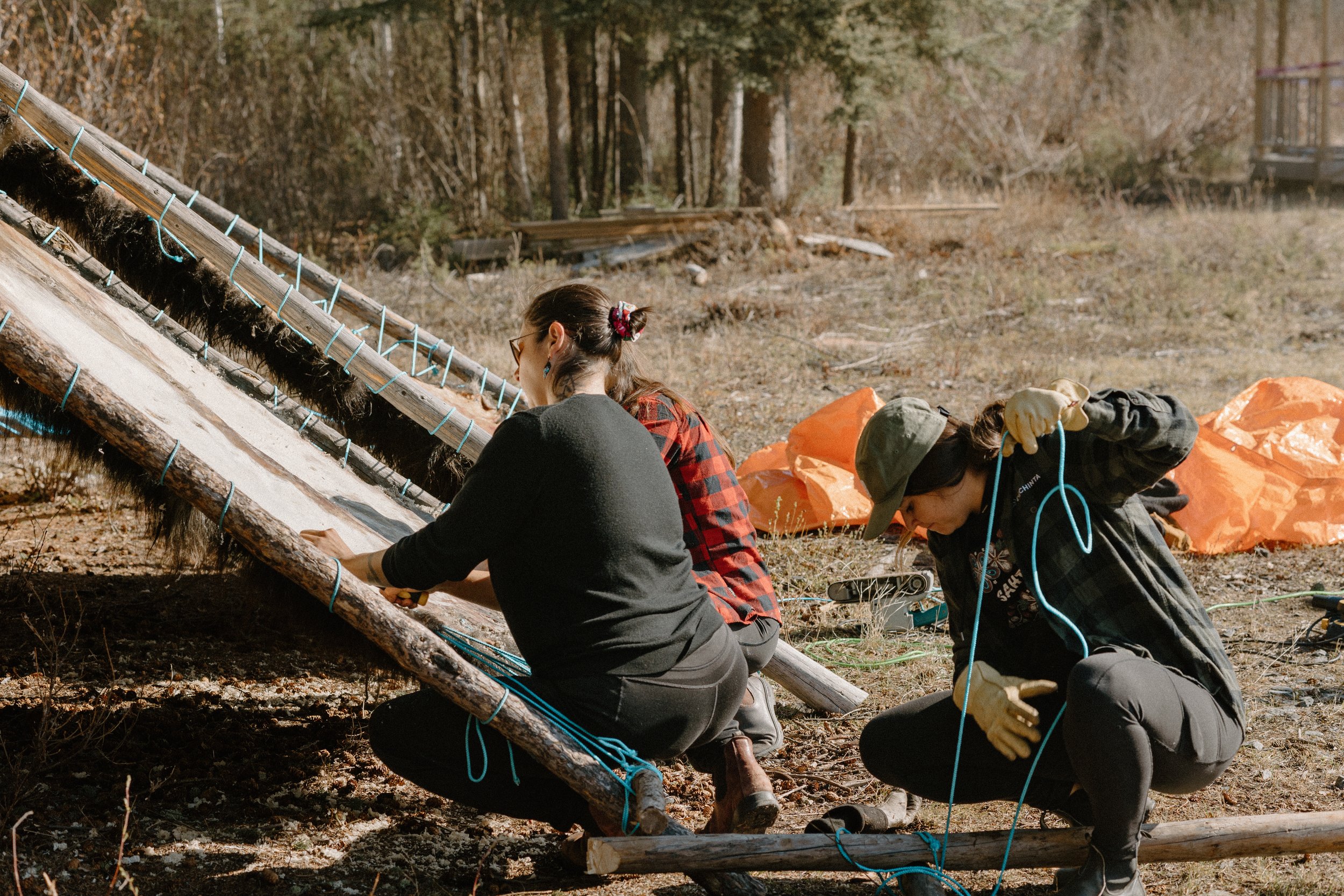
What is Research?
Research is curiosity, passion, and thinking in relation to the world around us. It is the creation, preservation, and sharing of knowledge. Centering non-traditional forms of knowledge dissemination and research praxis is an important part of reframing what Indigenous-centered research can be. At Dechinta we believe it is important to make space for research projects that require slow collaboration building. Our research outputs do not always take the form of peer reviewed publications, but involve the long-term creation of ethical and reciprocal relationships between communities.
Our Research Mission
Land-based learning is fundamental to revitalizing and sustaining Indigenous and Dene knowledge, worldviews, culture, and language. Indigenous Knowledge systems are rigorous land-based knowledge systems in their own right, with their own theoretical, methodological and ethical practices, and their mechanisms for protecting and sharing knowledge. As such, there is a growing recognition of the importance of research in building strong self-determining Indigenous communities amidst the ongoing political, social and cultural context of decolonization and reconciliation in Canada. Despite this, significant challenges have emerged in re-centering Indigenous voices and ways of knowing in Indigenous-led research and education programs. At Dechinta we work to support wise practices in conducting Indigenous research in the North by participating in knowledge creation and dissemination that serves the needs, and is developed in close relationship to the communities that we work with.
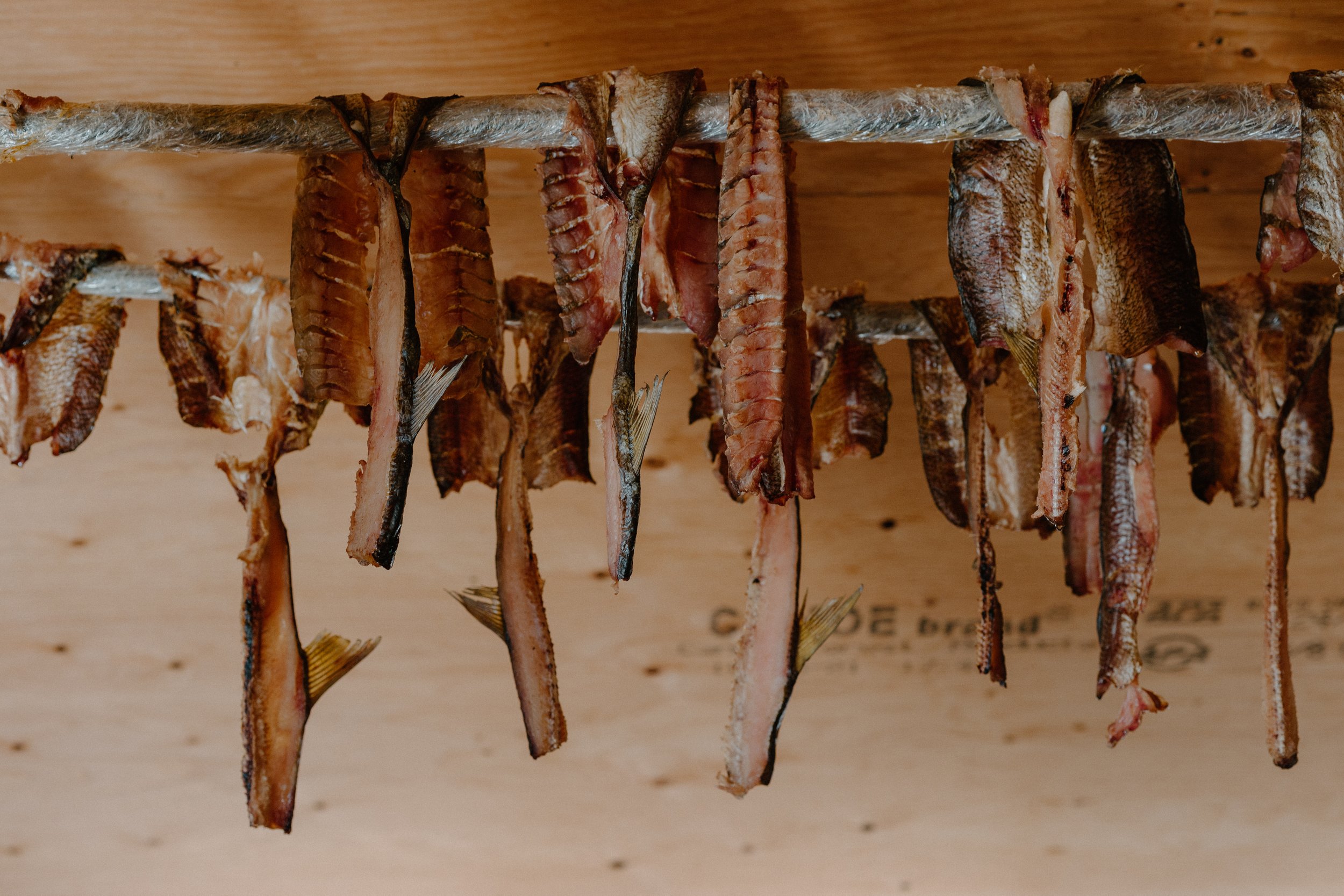
Research Priorities, Values and Ethics
Before we undertake research at Dechinta, we consider the following:
Collecting Knowledge: How are we collecting knowledge ethically? How does the process of knowledge creation serve the individuals and communities we are working with?
Sharing and Publishing Knowledge: What cultural and community knowledge do we share with a wider audience? What knowledge do we not share? If we want to publish or disseminate our research findings at Dechinta, it is necessary to receive consent from the Elders, knowledge holders, and community members who have shared their knowledge with us.
Community Access to Knowledge: Who has access to the research we conduct? Who benefits from it? At Dechinta we support research projects that contribute to long-term capacity building and sustainable change in Northern communities and we want our research to be accessible to Indigenous non-academics and community members in the North.
Ownership Control Access Possession (OCAP) Guidelines: Dechinta aims to adhere to OCAP principles, which asserts that First Nations have control over data collection processes, and that communities own and control how this information can be used. The guidelines establish how First Nations’ data and information will be collected, protected, used, or shared and can be used as a tool to support strong information governance on the path to First Nations data sovereignty. More information on OCAP guidelines can be accessed here: https://fnigc.ca/ocap-training/
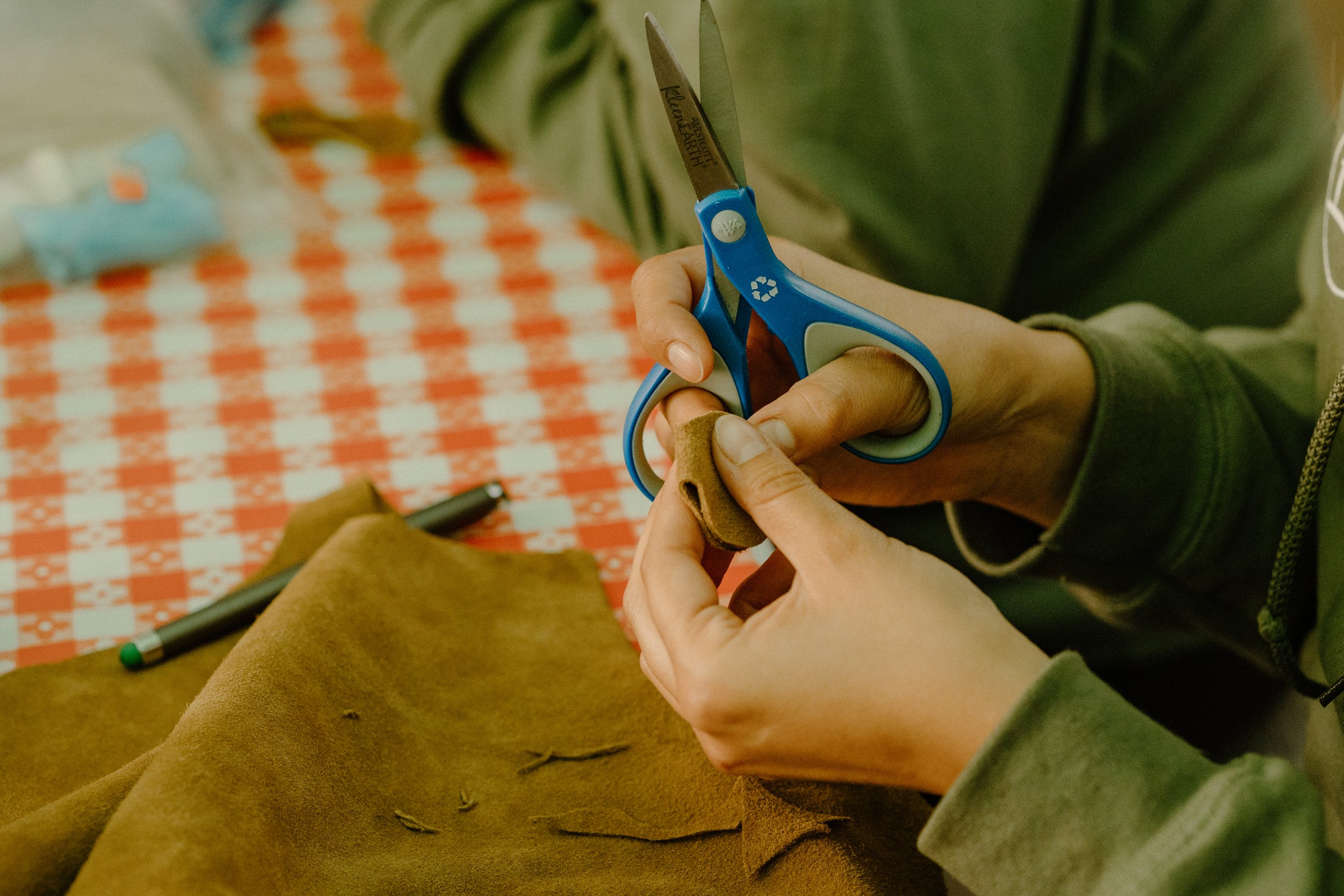
Dechinta Funded Research Projects
Land Based Education in the Era of COVID-19 (2020): With funding from the Mastercard foundation, Dechinta is creating a series of online workshops and resources addressing the challenges of delivering land based education in the era of the pandemic. Led by Drs. Kelsey Wrightson and Leanne Betasamosake Simpson, land based Indigenous educators from the north, and in Canada and the US were interviewed on a variety of topics, including queering land based education. The result of this research and knowledge mobilization project is a series of webinars and a report/toolkit which can be viewed here.
Land as Relationship: Cultivating Cross-Struggle Solidarity through Land-Based Practice (2020): This SSHRC Connections Grant, led by Drs. Glen Coulthard and Leanne Betasamosake Simpson, asks the following questions: how can Dene knowledge, including placed-based ethics, better inform and support solidarity building across multiple communities of justice? How can academics and activists better communicate and mobilize knowledge to these diverse communities, while respecting Indigenous knowledge systems and ethics? How can a connection to land, embodied and practiced in place, further the collective goals of reconciliation that includes multiple communities? In the winter of 2019, the project held a land-based solidarity gathering on YKDFN attending by a number of Indigenous, Black and Brown activists and organizers from Canada and the United States. The global pandemic put some of this research on hold. We were able to host Robyn Maynard in Yellowknife in 2020 for a public lecture and series of workshops. We continued this work in the form of our Solidarity book club reading Maynard’s Policing Black Lives and Desmond Cole’s The Skin We Are In. Leanne Betasamosake Simpson and Robyn Maynard were also able to continue this research on their own in a project called Rehearsals for Living.
Dreaming New Worlds: Indigenous Creative Practice (SSHRC Connections Grant - 2020): Led by Leanne Betasamosake Simpson, this project asks: How are community based Indigenous artists integral to the field of Indigenous artistic practice? How can the inclusion of artists working from these locations, often doubly remote in terms of both geographic and economic distances, contribute to the field of Indigenous artistic practice, and the role of Indigenous cultural production in the project of reconciliation more broadly? This research included a land based arts gathering in February 2020 with a public artist talk by Leela Gilday, Asinnajaq, Siku Allooloo, Lianne Charlie, Teya Kocsis, Tania Willard and Erin Sutherland. While COVID-19 has stalled this research, we have continued to work with Northern Indigenous artists in our book project, Feeding our Fires.
Land as Practice Summer Institute (SSHRC Connections Grant - 2020): The Kaska Dena Land as Practice took place in the summer of 2019 in collaboration with called Nío Nę P'énę' Sōdzane'ín. The institute took place in the K'á Tǝ́ area (Backbone of the Mackenzie Mountains) and within the shared territory of the Shúhtaot’ın̨ ę and the Tu Łidlini (Ross River) Dena. We were be based at Dechenla Lodge, located about 30 kilometres east of the Yukon/NWT border, along the Canol Road, and within the extensive willow flats known as K’á Tǝ́. As the Dene names of the lodge and larger area reflects, we were above the tree line and in the heart of the mountains. It is an important place for caribou; at least five different herds of mountain caribou gather here in the summer and fall. We were incredibly happy to be joined by Elders from both sides of the mountains and they shared extensive personal history and knowledge of the area. We were excited to work with new community partners, including Tulıt́ 'a and Norman Wells Ɂehdzo Got'ı̨nę (Renewable Resources Councils) Ɂehdzo Got’ı̨nę Gots’ę́ Nákedı (Sahtú Renewable Resources Board) with funding from the Lawson Foundation. The program was developed by Dena Elders, who have requested a focus on Dena Law, Sovereignty, Respect for Land and History. Each week had a different focus, with students learning from the extensive teachings and histories. We made drymeat, tanned hides, set nets and listened to the many stories shared by Elders. Students earned credit for two courses from the University of British Columbia. These two courses are the foundation for the Dechinta Certificate in Land and Community Based Research. We are continuing this program in 2021with a series of community based programming around caribou, and a series of initiatives organized by our regional land based coordinator, Josh Baricello.
Land as Pedagogy: Immersive Education for Dene Life (SSHRC Connections Grant): This Connections grant was requested by members of the Yellowknives Dene First Nation as a means to research best-practice in Indigenous language learning, innovate and create distinctly Dene pedagogies, and to pilot an immersive language-learning workshop. They developed this project in collaboration with fluent language speakers from the Yellowknives Dene First Nation, creating both the theory and practice of Dene pedagogical innovation around land, language, and storytelling. Drs. Leanne Betasamosake Simpson and Kelsey Wrightson coordinated this research project.
